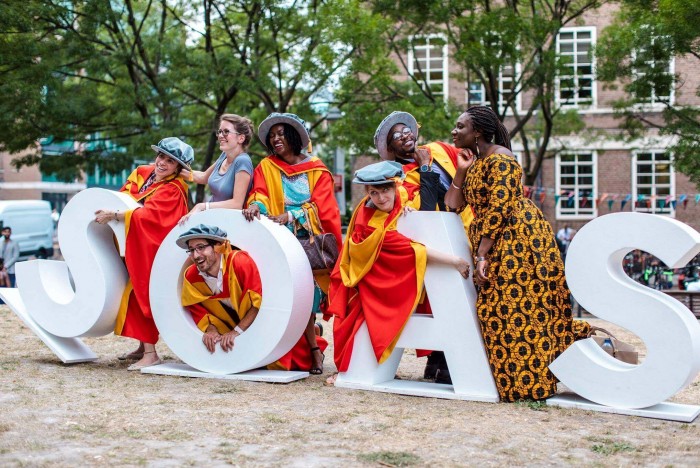The ad has been widely lambasted for its racism and has severely damaged the brand’s presence in China. Since its release, the label have cancelled their spring catwalk show and released an apology from the founders, and their following on Chinese social media app Weibo has dropped by more than 15,000 according to Thinknum.
For Maria Elena Ferri, a graduate of SOAS University of London who currently works in Shanghai, the blunder was entirely avoidable.
“There’s a very different working approach in China,” Maria Elena explains. “When you work with clients, you need to have a specific perspective—people that didn’t study China and don’t have a background there won’t be able to understand.”
Specialized cultural knowledge
Simply put, if more of Dolce & Gabbana’s marketing team had held a deeper understanding of how Chinese culture works, they could have been saved from damaging their reputation. As a marketing professional herself, Maria Elena knows that knowledge is key—and much of hers came from her Master’s in International Management at SOAS.
By the time she enrolled at SOAS, Maria Elena had been interested in China for some time. She had taken a graduate internship in Shanghai during her first master’s degree in Italy, and been studying the language for some years; however, she wanted to enhance her management skills to move her career there long-term.
SOAS seemed like the ideal place for her to get this education: “SOAS is the world-leading institution for teaching Chinese, Japanese, and African languages, so I thought that this was the place for me,” she says, “not just for the Chinese teaching, but for the managerial teaching, too—I think that all over the world it’s important to know the economic and managerial vocabulary to work in firms.”
Indeed, the Master’s in International Management programs at SOAS each specialize in a specific market. There are three Master's in International Management courses on offer: one focusing on China, another the Middle East and North Africa, and one focusing on Japan.
The courses take advantage of the school's expansive faculty, which is home to the largest concentration of specialist staff focusing on Africa, Asia, and the Middle East, and their research informs a nuanced teaching of management in these areas.
Useful hard skills
Despite having studied management in the past, Maria Elena found the Master's in International Management at SOAS University of London particularly rewarding.
“The most useful thing was also the most difficult thing—working with stats and software,” she says.
“I had only focused on the humanities before, but SOAS taught us the more practical side, how to read graphs and give an opinion based on the data.”
Maria Elena felt that this empirical teaching gave her an edge compared to her education in Italy, where her studies had been more theoretical, and she’s seen the returns in her career since moving to Shanghai.
“I’m in the marketing department of my firm, and one of the courses I did at SOAS was international marketing,” she says. “The course was based on how people like me, who speak many different languages, can help a firm improve in the marketing field.
“They also taught us how to analyze business situations from a strategic point of view and improve your advertising for the social and cultural background of the country—which is exactly what I do here in China!”
A must-have for bilingual businesspeople
The specialized nature of the Master's in International Management at SOAS University of London, then, has given Maria Elena what she was looking for in terms of managerial skills—and she recommends it to others with her background.
Particularly for people who already have a grasp of the language in the emerging market that they’re interested in, Maria Elena thinks that SOAS has a lot to offer, and will help them stand out to potential employers around the world.
“Companies working in China absolutely need people with my profile to do well in China, or they will slip on cross-cultural problems just like Dolce & Gabbana,” she insists. “That was a miscommunication in the advertising field, but it can be applied to any other, and it’s a solid part of my job.
“Firms need our kind of professional figures, even if you want to manage the Chinese market for a firm in Europe—that’s really important as well.”








